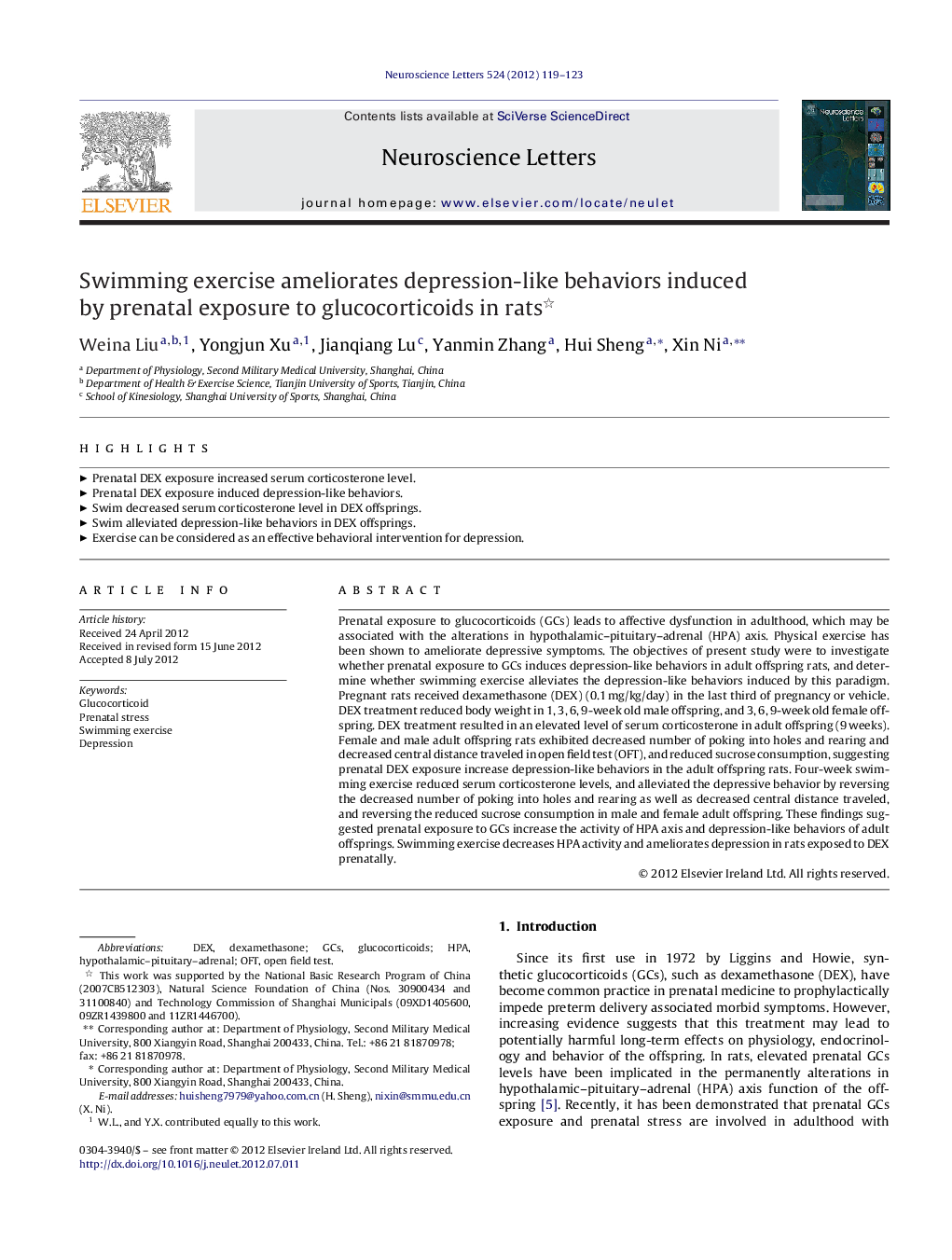| Article ID | Journal | Published Year | Pages | File Type |
|---|---|---|---|---|
| 4344341 | Neuroscience Letters | 2012 | 5 Pages |
Prenatal exposure to glucocorticoids (GCs) leads to affective dysfunction in adulthood, which may be associated with the alterations in hypothalamic–pituitary–adrenal (HPA) axis. Physical exercise has been shown to ameliorate depressive symptoms. The objectives of present study were to investigate whether prenatal exposure to GCs induces depression-like behaviors in adult offspring rats, and determine whether swimming exercise alleviates the depression-like behaviors induced by this paradigm. Pregnant rats received dexamethasone (DEX) (0.1 mg/kg/day) in the last third of pregnancy or vehicle. DEX treatment reduced body weight in 1, 3, 6, 9-week old male offspring, and 3, 6, 9-week old female offspring. DEX treatment resulted in an elevated level of serum corticosterone in adult offspring (9 weeks). Female and male adult offspring rats exhibited decreased number of poking into holes and rearing and decreased central distance traveled in open field test (OFT), and reduced sucrose consumption, suggesting prenatal DEX exposure increase depression-like behaviors in the adult offspring rats. Four-week swimming exercise reduced serum corticosterone levels, and alleviated the depressive behavior by reversing the decreased number of poking into holes and rearing as well as decreased central distance traveled, and reversing the reduced sucrose consumption in male and female adult offspring. These findings suggested prenatal exposure to GCs increase the activity of HPA axis and depression-like behaviors of adult offsprings. Swimming exercise decreases HPA activity and ameliorates depression in rats exposed to DEX prenatally.
► Prenatal DEX exposure increased serum corticosterone level. ► Prenatal DEX exposure induced depression-like behaviors. ► Swim decreased serum corticosterone level in DEX offsprings. ► Swim alleviated depression-like behaviors in DEX offsprings. ► Exercise can be considered as an effective behavioral intervention for depression.
